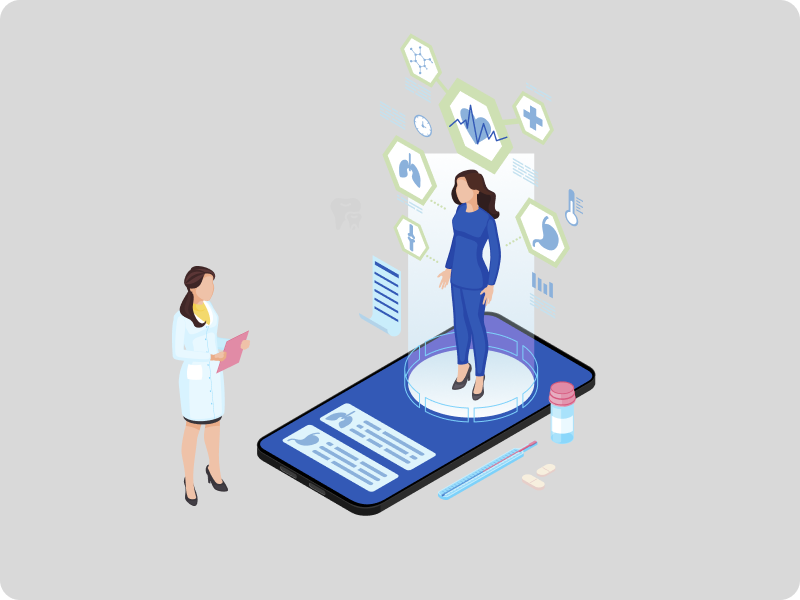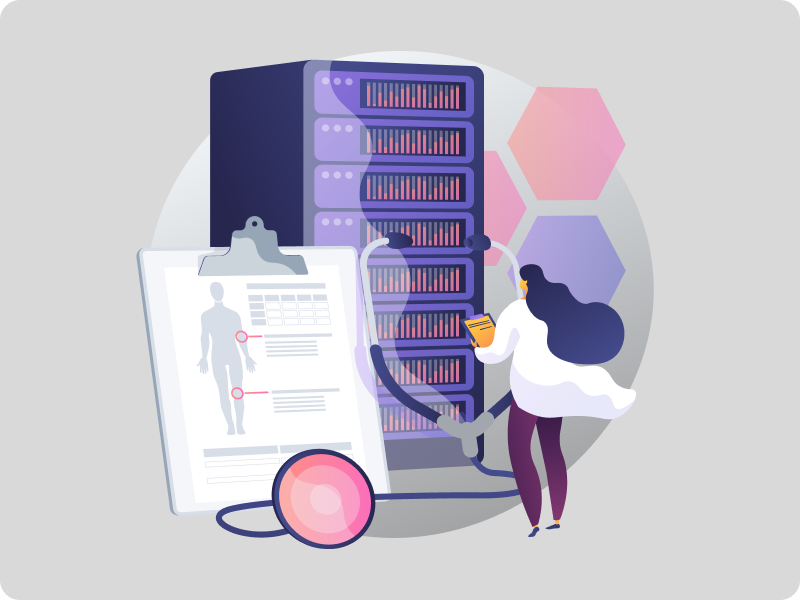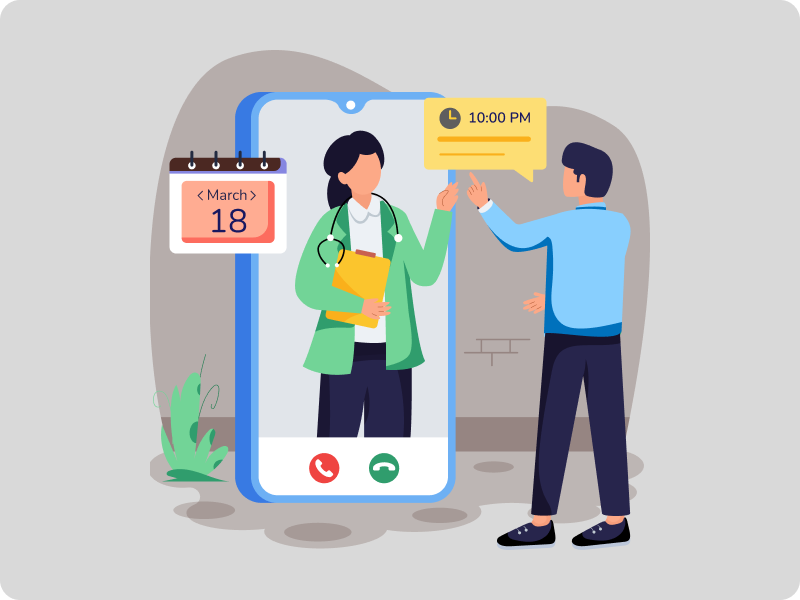The Future of Medicine: How AI is Transforming Healthcare
The healthcare industry is on the brink of a revolution and at the heart of this transformation is Artificial Intelligence (AI).
From diagnosing diseases to personalizing treatment plans, AI is reshaping how healthcare is delivered, making it more efficient,
accurate and patient-centric.
In this blog, we’ll explore the incredible ways AI is transforming healthcare, the challenges it faces and what the future holds for this groundbreaking technology.
The Role of AI in Modern Healthcare
AI refers to the simulation of human intelligence in machines that are programmed to think, learn and make decisions. In healthcare, AI is being used to analyze vast amounts of data, identify patterns and provide insights that were previously unimaginable. Here’s how:
1. Enhanced Diagnostics
AI-powered tools are revolutionizing diagnostics by analyzing medical images, lab results and patient histories with remarkable accuracy.
AI algorithms can detect early signs of diseases like cancer, heart disease and diabetes, often with greater precision than human doctors.
Explore JGDHealth’s AI-powered tools
2. Personalized Treatment Plans
AI enables the creation of personalized treatment plans by analyzing a patient’s genetic makeup, lifestyle and medical history.
This approach, known as precision medicine, ensures that patients receive the most effective treatments tailored to their unique needs.
3. Predictive Analytics
By analyzing historical and real-time data, AI can predict disease outbreaks, patient admissions and even individual health risks.
This allows healthcare providers to take proactive measures, improving outcomes and reducing costs.
4. Streamlined Administrative Tasks
AI is automating administrative tasks like scheduling, billing and claims processing, freeing up healthcare professionals to focus on patient care.
Natural Language Processing (NLP) tools can also transcribe medical notes, reducing paperwork and errors.
5. Remote Monitoring and Telemedicine
Wearable devices and AI-powered apps are enabling remote patient monitoring, allowing doctors to track vital signs and provide care from a distance.
This is particularly beneficial for patients with chronic conditions or those living in remote areas.
Real-World Applications of AI in Healthcare
1. IBM Watson for Oncology
IBM Watson uses AI to analyze medical literature and patient data to recommend personalized cancer treatment options.
It has been adopted by leading cancer centers worldwide, helping doctors make informed decisions faster.
2. Google DeepMind for Eye Disease Detection
Google’s DeepMind has developed an AI system that can detect over 50 eye diseases by analyzing retinal scans.
This technology is being used in hospitals to diagnose conditions like macular degeneration and diabetic retinopathy.
3. AI in Drug Discovery
AI is accelerating drug discovery by analyzing vast datasets to identify potential drug candidates.
Companies like Insilico Medicine and Atomwise are using AI to reduce the time and cost of developing new treatments.
4. Virtual Health Assistants
AI-powered virtual assistants like Babylon Health and Ada are providing patients with instant medical advice, symptom checking,
and appointment scheduling, improving access to care.
Challenges and Ethical Considerations
1. Data Privacy and Security
The use of AI requires access to vast amounts of sensitive patient data, raising concerns about privacy and security.
Ensuring compliance with regulations like HIPAA and GDPR is crucial.
2. Bias in AI Algorithms
AI systems are only as good as the data they’re trained on. If the data is biased, the AI’s recommendations may be flawed,
leading to unequal or inaccurate care.
3. Integration with Existing Systems
Integrating AI into existing healthcare systems can be complex and costly. Healthcare providers need user-friendly solutions
that seamlessly integrate with their workflows.
4. Ethical Dilemmas
AI raises ethical questions, such as who is responsible for errors made by AI systems and how to ensure transparency in decision-making processes.
The Future of AI in Healthcare
1. AI-Driven Robotics
Robotic surgeries assisted by AI are becoming more common, offering greater precision and faster recovery times for patients.
2. AI in Mental Health
AI-powered tools are being developed to diagnose and treat mental health conditions, such as depression and anxiety, through chatbots and mood-tracking apps.
3. Expansion of Telemedicine
The COVID-19 pandemic has accelerated the adoption of telemedicine and AI will play a key role in making virtual care more efficient and accessible.
4. Collaboration Between Humans and AI
The future of healthcare lies in collaboration between humans and AI. Doctors will use AI as a tool to enhance their expertise, not replace it.
Conclusion
AI is a transformative force that is reshaping the future of medicine. From improving diagnostics to personalizing treatments, AI has the potential
to revolutionize healthcare and improve outcomes for patients worldwide. While challenges remain, the benefits of AI far outweigh the risks.
By embracing this technology, healthcare providers can deliver better care, reduce costs and stay ahead in an increasingly competitive industry.
At JGDHealth, we’re committed to harnessing the power of AI to transform healthcare delivery. Our innovative solutions are
designed to improve diagnostics, streamline operations and enhance patient care.




